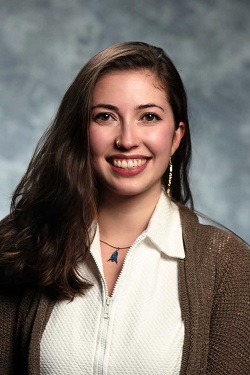AP Perspectives: 4 Key Steps for White Fundraisers to Inclusively Expand Their Network

Today I’d like to talk to young, white, novice fundraisers like myself about how and why we need to build diverse and inclusive networks. And for all you seasoned professionals, read on—you might still learn something!
In the past year and a half, the global pandemic, a social reckoning in the U.S., and general worldwide instability have prompted many of us to reevaluate the current state of “normality” and to reflect on what our future can and should look like. The current focus on and discussions about diversity, equity, inclusion, and belonging, as well as the harms of systemic and institutionalized racism and oppression, has ignited or refueled many of us to commit to dismantling the inequalities that exist in society. The need to foster, support and uplift others affected by our broken system can no longer be ignored.
I’ll be honest with you. This piece came about because I’ve been reflecting on the unearned privilege my skin color has provided me, and as I looked around my professional network, I realized I couldn’t find anyone in it that identified as Black, Indigenous, or Persons of Color (BIPOC). In fact, I noticed that practically everyone in my circles looks and experiences life just as I do. I realized that I wasn’t living the values I so strongly believe in. This needed to change.
If this sounds familiar, I invite you to join me on this journey. Look at your circles. When you picture those in your networks, what do they look like? Who is included (and, by extension, who is excluded)? Does everyone look like you? Why might that be?
If, like me, your current network is composed of people who largely look like you and navigate life similarly to the ways you do, it’s time to adjust. Consider what you’re missing out on: different perspectives, experiences, ideas!
To get you started, let me share four simple things you can do to expand your network so it reflects a more equitable and inclusive lens:
1. Evaluate your current network. Who’s included? Self-reflect and examine why your network looks the way it does. What spaces do you seek out to connect in, and why? Make moves to make changes: take a look at AADO, which connects and provides resources for professionals of color and allies in the development field. Connect on Facebook, learn about their resources and membership, and reach out to fellow fundraisers in your state participating in the association to see if they’d like to connect. Also, check out the Community-Centric Fundraising movement, a fundraising model that promotes equity and social justice in the sector. Join the community’s Slack channel, connect with participants on LinkedIn, and participate in meaningful discussions with your peers.
2. Commit to meaningfully building an inclusive network. Invite your colleagues of color to join you in the networking events and opportunities you engage with, but also ask them where they go to network, and join them. Realize that if you’re inviting your colleagues of color to networking events where they will be the only BIPOC person in the room, that’s not really promoting inclusivity. Look into networking events at your local African American Chamber of Commerce, Hispanic Chamber of Commerce, and Asian Chamber of Commerce and attend them where appropriate, and research other events in your area that host welcoming spaces for BIPOC professionals. As someone mentioned to me, if you really want to build meaningful relationships with your colleagues of color, step out of your comfort zone—don’t just invite them to do the things you do or that you like, ask instead with what and how they’d like to engage.
3. Uplift your colleagues of color. Use the platform, power, and privileges you hold to uplift, share, and amplify the voices of your colleagues and peers of color. What does that look like? Let’s say a colleague of color mentions something about DEI in a meeting (which, let’s be honest, the burden of doing so is often problematically placed upon BIPOC professionals). Back that colleague up in the meeting (not afterward, in private), and echo what your colleague is saying. If there’s an upcoming meeting where you know this topic will be discussed, connect with your colleagues of color beforehand to see how you can provide support during that conversation.
4. Practice humility and embrace discomfort. Realize that you’re going to make mistakes (and that’s OK), and exercise gratitude toward those who help you learn how to remedy those hiccups and do better going forward. Take the initiative to intentionally put yourself into spaces of discomfort, for those spaces are often the ones in which we learn and grow the most. Evaluate why this work is important to you and take every opportunity at your disposal to continue learning and improving. Commit to being a lifelong learner and never stop doing the work.
You may be thinking, “That’s all very well and good, but where does that leave me? Why should I care?” I firmly believe that as a white-presenting, non-disabled, cis-gendered fundraiser, it’s my (and others who identify similarly to me) responsibility to acknowledge the expectation of whiteness as the norm in the professional and networking spaces we inhabit. We must call in that expectation and use the power and privileges we hold to uplift, support and amplify the voices of our colleagues of color. We all have a stake in dismantling white supremacy, systemic and institutional racism, and oppression. Particularly for those of us who directly benefit from these systems, we have a responsibility to use our power to tear them down. A good place to start is with our professional networks.
It goes without saying that this isn’t an exhaustive list. You may even have additional suggestions that can be added to it, and if you do, please share them with me. At the end of the day, we must commit to learning and improving every single day. I hope you’ll join me.


 Caroline Olin is passionate about leveraging her skills as a fundraiser to make a positive impact in the world. Caroline is currently a development coordinator at Space Foundation, which convenes and unites the global space community, advocating for innovation and bettering life on Earth. Previously, she worked as a development and prevention specialist at TESSA of Colorado Springs, and at Talking Trees Inc. as a community educator and promotional specialist. She is currently participating in AFP's Women's Impact Initiative Alford Group Mentoring and Leadership Development Program and serves on the Emerging Leaders Taskforce for AFP Global.
Caroline Olin is passionate about leveraging her skills as a fundraiser to make a positive impact in the world. Caroline is currently a development coordinator at Space Foundation, which convenes and unites the global space community, advocating for innovation and bettering life on Earth. Previously, she worked as a development and prevention specialist at TESSA of Colorado Springs, and at Talking Trees Inc. as a community educator and promotional specialist. She is currently participating in AFP's Women's Impact Initiative Alford Group Mentoring and Leadership Development Program and serves on the Emerging Leaders Taskforce for AFP Global.

